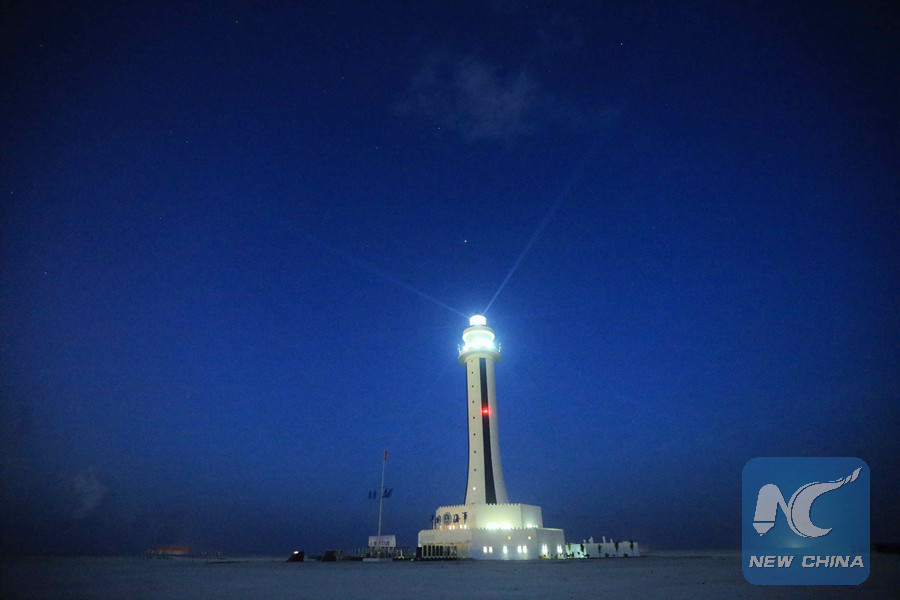
Photo taken on April 5, 2016 shows the lighthouse on Zhubi Reef of Nansha Islands in the South China Sea, south China. (Xinhua file photo)
by Xinhua Writer Zhu Junqing
BEIJING, July 2 (Xinhua) -- As an honest and responsible power, China has always abided by international law and basic norms governing international relations, and will continue to do so in the South China Sea issue while safeguarding its territorial sovereignty.
As the Permanent Court of Arbitration in The Hague will announce the so-called "award" on July 12, a new smear campaign against China has emerged, this time by veteran Washington attorney Paul Reichler.
Though Reichler as an international lawyer enjoys a reputation for representing small countries against big powers, he has no right to depict China as an "outlaw state" for no reason.
In an interview with Reuters on Wednesday, the Philippines' chief lawyer said China risks being seen as an "outlaw state" unless it respects the outcome.
On the South China Sea arbitration initiated unilaterally by the Philippines, China has reiterated that it does not accept nor is it a participant in the arbitration, and will never recognize the so-called "award" for the following reasons.
First, the Arbitral Tribunal has violated the United Nations Convention on the Law of the Sea (UNCLOS) and has abused its power at will by hearing the case and exercising jurisdiction.
Under UNCLOS, the jurisdiction of an arbitral tribunal is limited to disputes concerning the interpretation or application of the convention. Territorial issues are not subject to UNCLOS, but to general international law.
The South China Sea case is in essence about territorial sovereignty and maritime delimitation.
The Arbitral Tribunal circumvented a declaration under UNCLOS that China made in 2006 to exclude third parties from any dispute involving maritime delimitation. Therefore, the tribunal in The Hague has exceeded its jurisdiction by accepting the Philippines' case.
Second, the Arbitral Tribunal has violated UNCLOS by hearing the case. It disregards the fact that China and the Philippines have chosen to settle disputes through their own means, such as negotiation.
UNCLOS stipulates that nothing impairs the right of states to settle a dispute through means of their own choosing. Further procedures will only be applied only where no settlement has been reached between parties.
Given the fact that China and the Philippines have made a clear choice to settle their dispute through one-on-one negotiations, third-party settlement procedures are unapplicable.
Third, the Philippines has broken an understanding reached with China on solving the disputes through negotiations, and its commitments under the Declaration on the Conduct (DOC) of Parties in the South China Sea.
"Pacta sunt servanda" - or maintaining agreements - is a basic principle in international law. However, the Philippines' unilateral initiation of the arbitration violates its agreement with China.
Fourth, China isn't the first country in the world to claim that a court lacks jurisdiction. In 1986, the International Court of Justice ruled that the United States had violated international law by supporting the Contras rebels against the Nicaraguan government and by mining Nicaragua's harbors. However, the United States refused to participate in the proceedings after the Court rejected its argument that the Court lacked jurisdiction to hear the case.
China has called on the Philippines to work with China to use the power of negotiation to solve disputes in the South China Sea, and welcomes remarks made by Philippine President Rodrigo Duterte of hopefully starting a "conversation" with China to work out a "win-win relationship."
China will continue to abide by international law and work with states directly concerned to resolve issues in the South China Sea through negotiation, to help maintain peace and stability in the South China Sea.











